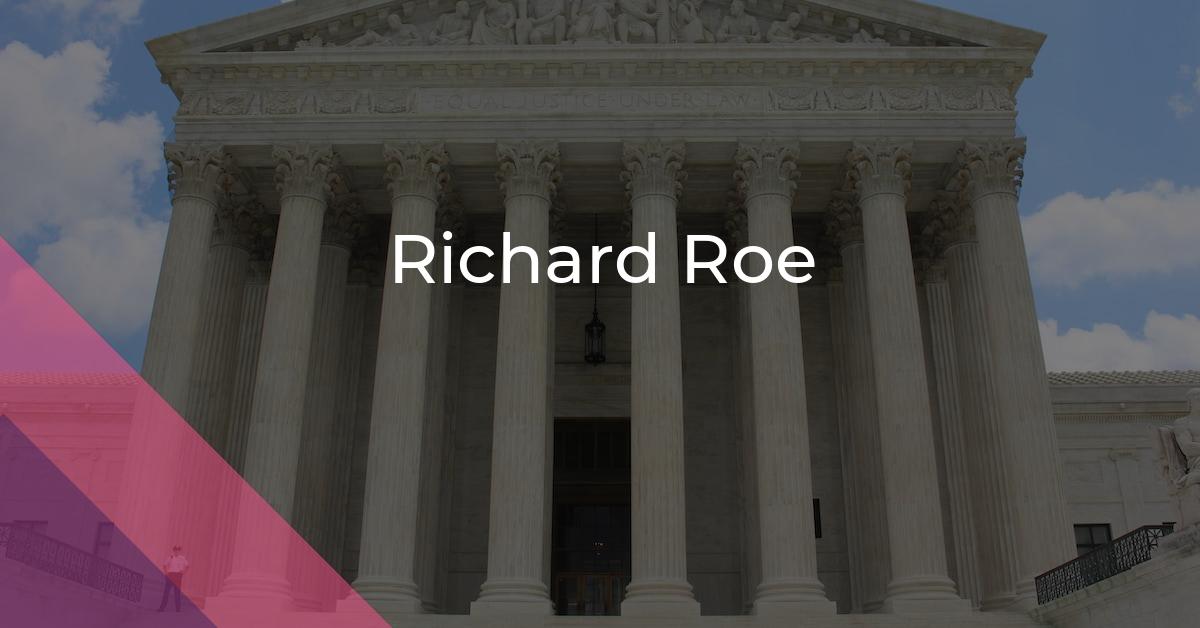Richard Roe: Idiom Meaning and Origin
What does ‘Richard Roe’ mean?
The idiom "Richard Roe" refers to an unknown or hypothetical person involved in a lawsuit or legal proceedings, often used when a specific individual's identity is not disclosed, allowing for anonymity in legal cases.

Idiom Explorer
The idiom "run one's name" means to establish or protect one's reputation or good name. It refers to taking actions to ensure that one's name is associated with positive qualities or actions.
The idiom "rumor mill" refers to the circulation of unverified information or gossip within a group or community.
An idiom that refers to the spreading of false information or gossip about someone or something, often with the intention of damaging their reputation.
The idiom "rule the roost" means to be in control or have authority over others, especially in a family or group setting.
The idiom "rough justice" means to administer justice in a harsh or unfair manner, without proper consideration of the facts or the law.
An idiom often used to describe a person who is disliked or considered bad, with negative qualities or behavior.
The idiom "rooting interest" refers to a personal stake or strong support for someone or something, typically in a competitive situation.
Linguistic Revelation
The idiom "Richard Roe" has a limited presence in the available sources online, making it relatively less known compared to other idioms. However, there are still a few facts known about this idiom that can shed light on its meaning and origins.
One fact about the idiom "Richard Roe" is that it refers to an anonymous or hypothetical person, similar to the usage of "John Doe." This idiom is often used in legal contexts when the actual identity of a party in a lawsuit is unknown or does not matter. In essence, "Richard Roe" serves as a placeholder or pseudonym in legal proceedings.
An interesting historical tidbit about this idiom is its connection to English common law. For centuries, "John Doe" and "Richard Roe" were used together as placeholder names in legal documents and court cases. The former represented the plaintiff, while the latter represented the defendant. These names were used when the actual names of the individuals involved were unknown or irrelevant to the case.
The origin of the name "Richard Roe" is uncertain, but it likely evolved from the practice of using common names as placeholders in legal proceedings. The choice of common names like John and Richard may have symbolized the average or ordinary citizen in legal matters. While the exact reasons for selecting these specific names remain unclear, they are steeped in historical speculation.
Although "Richard Roe" may not be as widely recognized as some other idioms, it still holds relevance in legal language and continues to be used in certain contexts. Its historical roots and association with the use of pseudonyms in legal proceedings offer an intriguing glimpse into the development and evolution of language in the legal realm.
Now let's move on to the idiom "Jane Roe." This idiom, similar to "Richard Roe," refers to an anonymous or hypothetical person. However, "Jane Roe" is most commonly associated with the landmark Supreme Court case Roe v. Wade. In this case, "Jane Roe" was a pseudonym used to protect the privacy and identity of the plaintiff, who sought to challenge the constitutionality of laws restricting access to abortion.
The use of the name "Jane Roe" in this case transformed it into a symbol of women's reproductive rights and the ongoing debate surrounding abortion. It represents the anonymous women who have fought and continue to fight for their right to make decisions about their own bodies.
Let's explore the idiom "name names." This phrase is often used to describe the act of revealing the identities of those involved in a particular situation or wrongdoing. When someone "names names," they are providing specific information about individuals who have been implicated in a certain event or activity.
"Name names" can have both positive and negative implications. On one hand, it can signal a willingness to be honest and transparent, providing valuable information to solve a problem or bring about justice. On the other hand, it can also be seen as a betrayal or act of vengeance, as the act of "naming names" can have serious repercussions for those involved.
Lastly, we have the idiom "pair of shoes." While this may seem like a simple phrase, it carries deeper meaning in certain contexts. In the figurative sense, a "pair of shoes" can represent someone's unique experiences, journey, or perspective.
Each person walks their own path, metaphorically represented by their "pair of shoes." This idiom highlights the individuality and distinctiveness of each person's life experiences, suggesting that we should not judge or compare others based solely on our own perspective.
The idiom "Richard Roe," along with its related idioms "Jane Roe," "name names," and "pair of shoes," offer insights into the legal realm, anonymity, privacy, and the complexity of human nature. Although some of these idioms may be less well-known, they still carry historical significance and contribute to the richness and diversity of language.
Example usage
Examples of how the idiom *Richard Roe* can be used in a sentence:
- 1. We need to find a Richard Roe to fill the position before the end of the week.
- 2. She was called to jury duty and served as a Richard Roe in the high-profile trial.
- 3. The company decided to hire Richard Roe as their new CEO due to his extensive experience in the industry.
Analysis:
The idiom "Richard Roe" is often used to refer to an anonymous or hypothetical person. It is derived from the legal term used to represent an anonymous party in a lawsuit. In the examples provided, the idiom is used in different contexts:
- In the first example, "Richard Roe" is used to suggest the need to find an anonymous or unknown person to fill a position, indicating that the specific identity doesn't matter.
- In the second example, "Richard Roe" is employed in relation to jury duty, indicating that an anonymous person is fulfilling the role of a juror.
- In the third example, "Richard Roe" is used metaphorically to describe an actual person named Richard Roe who is hired as a CEO, but the use of the idiom signifies that the focus is on the qualities and attributes of the person rather than their specific identity.
More "Law" idioms



